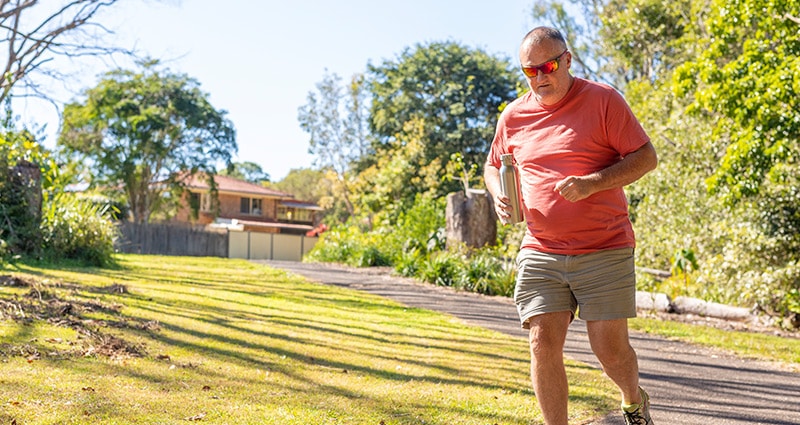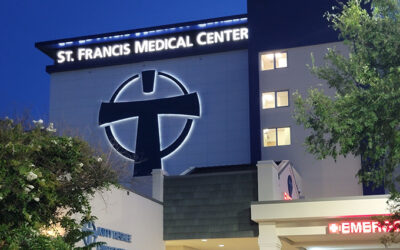Checking your weight is the first thing a primary care provider will do when you go in for a checkup. “It’s truly that important,” says Curtis Chastain, MD, of Our Lady of the Lake Physician Group Men’s Health and Executive Wellness Center.
Small fluctuations in weight are normal, but your doctor is always on the lookout for what weight gain might mean for your overall health—and if there’s cause for concern.
Studies show obesity affects about 75% of American men over 40. It can lead to high cholesterol, hypertension, cardiovascular disease, insulin resistance or diabetes, and increases your risk of cancer.
According to the Centers for Disease Control and Prevention, excess weight gain and prolonged obesity can result in higher-than-normal insulin levels, long-lasting inflammation and other internal changes that can lead to a variety of cancer types, such as cancer of the colon, pancreas, kidneys and liver.
And losing all that excess weight gets harder and harder as men age. Muscle mass and metabolism decrease, hormones that regulate appetite and satiety fluctuate and an active lifestyle falls off the daily routine.
But there’s still hope for guys if they’re willing to put in a little extra work.
Dr. Chastain and Tyler Boudreaux, MD, of the Men’s Health and Executive Wellness Center offer some tips for getting your weight in check.
Watch what you eat, of course.
Cut out the simple carbohydrates that are found in processed foods and things packed with refined sugars, such as candy, packaged treats and soft drinks. Aim for complex carbs, which contain more nutrients and are higher in fiber. That means your body digests them more slowly and leaves you feeling full longer. Complex carbs are found in fiber-rich fruits and vegetables, whole grains and beans.
Watch how you eat, too.
Portion control is important for weight loss. The Mayo Clinic has a handy visual guide to how big servings of vegetables, carbs and proteins should be on your dinner plate. Unfortunately for meat lovers, you should be trimming that cut of grilled meat down to about the size of a deck of cards.
Avoid eating meals too late in the evening, otherwise your body is more likely to store the food as fat rather than using it for energy.
Talk with your doctor about any diet plans you might be considering to determine what might work best for you and which diets you might want to avoid.
Don’t abandon the exercise routine.
Putting on pounds doesn’t have to be an inevitable part of getting older, Dr. Boudreaux says. It’s important to get in at least 30 minutes of exercise three times per week. That should include both cardio and weight training as men get older to combat muscle loss as well as weight gain. More muscle means a better metabolism and helps burn calories much quicker than regular cardio.
Talk to your doctor about weight loss medications and stimulants.
Dr. Boudreaux says stimulants and supplements such as Hydroxycut have been the go-to for weight loss “quick cures” in the past, but their benefits aren’t always backed by hard research. Newer advances including oral and injectable stimulants have been shown to improve the way the body handles glucose and increase satiety. But with any supplements and medications, these should be discussed with your doctor first.
In the end, the most effective solution is often the simplest—yet sometimes hardest. Weight loss takes time, it takes a healthy diet and it takes the determination to maintain an active lifestyle as you age.




